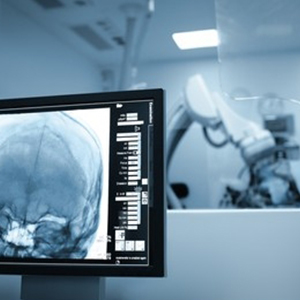Neurosurgery is a medical specialty that deals with the diagnosis and treatment of patients suffering from diseases of the brain, spinal cord, spinal nerves, and peripheral nerves in all parts of the body. Depending on the type of disease, specialists offer surgical treatment.
Some surgical procedures used in a wide range of neurological and neurosurgical conditions. These may include:
- Brain tumors: Neurosurgeons in Vijayawada at Bezwada Hospitals & Diagnostics can remove or biopsy tumors, whether they are cancerous (malignant) or noncancerous (benign).
- Spinal Disorders: Includes surgery for conditions such as herniated discs, spinal stenosis, and spinal deformities such as scoliosis.
- Traumatic brain and spinal cord injuries: Neurosurgeons may perform operations to treat injuries to the brain or spinal cord.
- Cerebrovascular disorders: These include aneurysms, arteriovenous malformations (AVMs), and other diseases that affect the brain's blood vessels.

- Surgery for Epilepsy: In cases where medications are not effective in controlling seizures, neurosurgeons may perform surgery to treat epilepsy.
- Functional neurosurgery: This field includes procedures such as deep brain stimulation (DBS) to treat conditions such as Parkinson's disease and essential tremor.
- Pain Management: Some neurosurgeons specialize in the surgical treatment of chronic pain such as trigeminal neuralgia or back pain.
- Pediatric Neurosurgery: Neurosurgeons who specialize in pediatric care perform surgical procedures on children with neurological diseases.
What can I expect during a visit to the Neurosurgeon in Vijayawada?
To get the most out of your appointment with the neurosurgeon, it is helpful to be prepared. Here are some ways to prepare:
- Bring a list of the most important issues you would like to discuss with your neurosurgeon.
- Discuss any changes in your overall health.
- Discuss your new symptoms or changes in existing or previous symptoms.
- Bring copies of test results that includes images, and laboratory tests ordered from other doctors outside of your neurosurgeon's healthcare network.
- Keep a list of all medications and supplements you are currently taking. Include prescription medications; Over-the-counter medicines; and all vitamins, supplements and herbal products.
- Bring a list of known allergies.
- Bring a friend or relative to the appointment to take notes and be another pair of ears and eyes for you. This person can help you review your neurosurgeon's discussions, ask questions, and remind you to schedule tests and follow-up appointments.
- Ask if you need to schedule another appointment to discuss other concerns.
Making a diagnosis can be a difficult task. However, if you have a condition that affects the nervous system, such as chronic pain or Parkinson's disease, a neurosurgeon can help you treat this condition. They are experts in their fields and have up-to-date knowledge of medications, procedures, and surgeries that can help you. Your neurosurgeon will work with you to determine a treatment plan that is best for you.
Consult Dr. V. Bala Balaji at Bezwada hospitals
Have any Query or Need more Information
